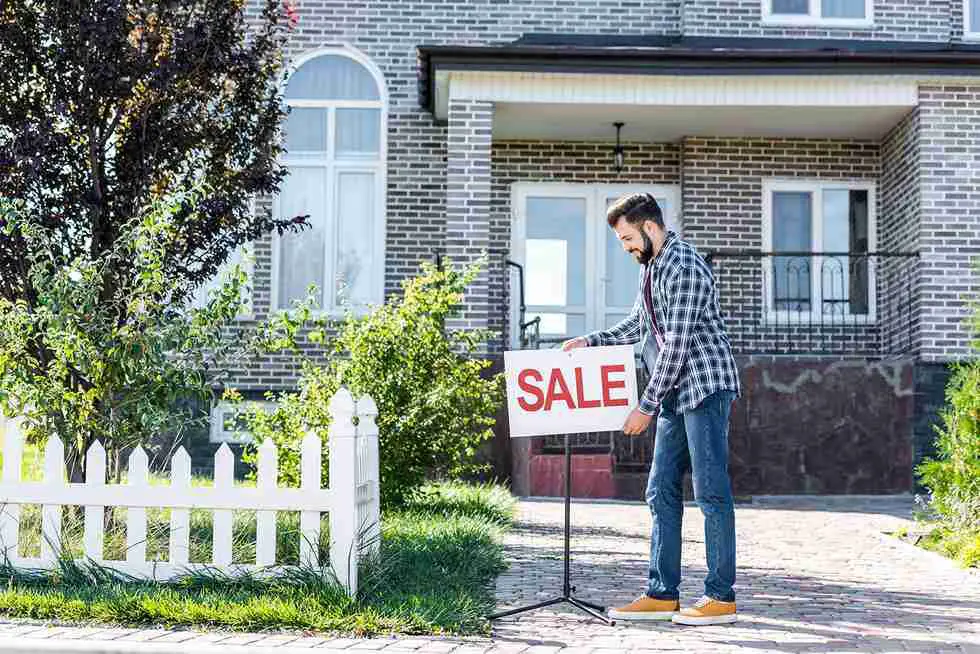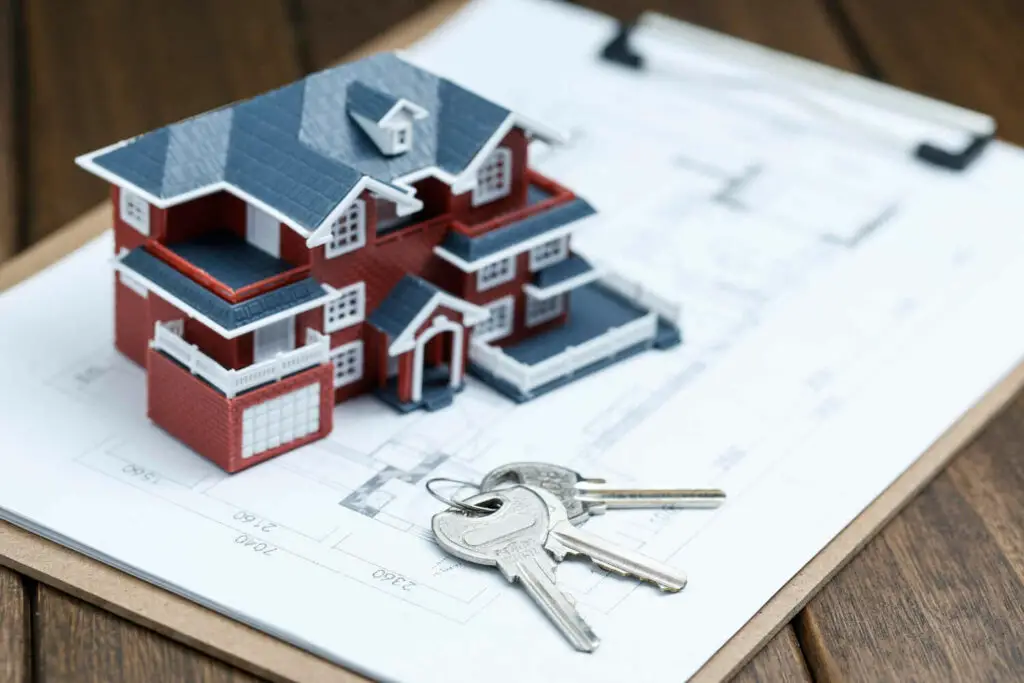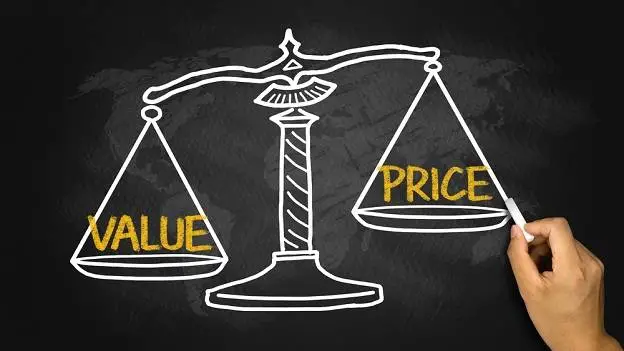Selling a house can be a long, exhausting process for many homeowners. There are many tough choices to make. Hiring the right realtor, strategizing a plan, and the paperwork might add additional stress to work. Thus, many people ask if they can sell their house without a realtor in a fast and profitable way.
FSBO, for sell by owner, is a term used to identify the process where the owner lists, advertises, puts offers, negotiates with the buyers, and closes the deal on their own without the involvement of another party.

While selling a house without a realtor might sound a bit uncertain at the beginning but hiring a realtor is not always the best decision you can come up with. A proper guideline can save a lot of your time and money. Here’s a guide to how you can sell your house without a realtor.
Pros and Cons of Selling a House Without a Realtor
Selling a house without a realtor is definitely a tricky process. It’s important to list out the pros and cons before jumping into the actual process.
The Pros
1. Save the Commission
People often prefer selling houses on their own without hiring a realtor to save the commission amount. That way, you’ll be able to keep the profit all by yourself without having to distribute it to an agent.
2. Right realtor is a tough choice
It’s very important to find the right realtor to be able to sell the house. Sometimes a wrong choice can just take away a lot of your time and energy. Some realtors might invest several months of studying the marker rather than selling the house. Hence, the selection of the right realtor might be a tough decision and also time-consuming.
3. Have control over things
Since there’s no involvement of the third party the homeowner has control over the overall pricing, buying agents, and potential buyers.
4. Quicker sale
Hiring a realtor, choosing the right one, studying the market, dealing with the buying agents and a lot more steps involved with the selling delay the actual sale. FSBO can actually be quicker in that case.
The Cons
1. Lack of Market Knowledge
A realtor is a professional and has more knowledge about the market than the owner. They know how to get the job done sooner or later. Sometimes, selling on your own might as well take a lot of your time on market research and the process involved.
2. The Paperwork Trouble
While hiring a middleman you’ll not have to get into the paperwork trouble as they’re professionals who are used to all the formalities. But as someone new trying to sell the house the paperwork involved might be troublesome.
3. Gathering Enough Patience
Well, as easy as it may sound but it’s actually an overwhelming process. One needs to be ready to get into all of the processes including paperwork, financial distribution, market research, repair, and management all without professional help.
Pro-Tip: Weigh the pros and cons equally and give it enough thought so that you’re mentally prepared for the rest of the procedure that follows.
9 Steps Sell a House Without a Realtor
Here are the steps you can take in order to sell your house without a realtor.
Step 1: Put an Appropriate Pricing
An efficient pricing strategy is an important part step while selling a house without a realtor. Find properties around you with similar conditions, layouts, and structures that have recently been sold. It gives you an idea about the pricing rate in the market.

Many owners tend to personalize the price margin and fail miserably. Below listed are a few steps you can follow to come up with appropriate pricing.
- Research: Go for the statistical approach. Collect as much data as you can and tally the reports. It’s important for owners to understand the buyer’s mind. What would the potential buyers buy for a certain estimated amount? One must have proper data to have an objective approach to it.
- Check the house condition: Compare the selling price with the house condition.
- Evaluate the market price: Check the market price of houses in your locality.
- Think as a buyer: While setting the price range, always think like a buyer. Would you buy your house if it were sold to you in the exact same price range?
Pro-Tip: Determine the value of your home calculating all the expenses and market value with enough research.
Step 2: Take Quality Pictures for Marketing
In order to get the attention of your potential buyers, it is recommended to get professional photographs. The photographers will guide you to get exact shots of your staged house highlighting the beauty.
Photographs play a major role in digital promotion. You never know whose share can lead you to a potential buyer. Here are some steps you can follow for the best photos.
- Hire a professional: It’s highly recommended to hire a professional photographer for the photographs as they have better knowledge of the subject matter.
- Proper Lighting: Maintain proper lighting while taking photos to display your home at its best.
- Better Quality: Better picture quality helps circulate your photographs even more. A poor-quality picture tends to attract fewer buyers.
Pro-Tip: Shoot the best photographs of your home to grab the attention of potential buyers.
Step 3: Reach Out to as Many People as Possible
Information flow is a crucial stage while selling a property. You never know which colleague of yours can lead you to your potential buyer. It’s important to share within your inner circle as much as you can. They might help you get more reach and also help you with promotion.
Pro-Tip: Leverage your social media to convey that your home is on sale.
Step 4: Promote Via Every Platform Available
Once you’re done with setting the pricing and the photographs, it’s time for promotion. There are multiple digital platforms available these days that you can use to sell your product.

Post the photographs with a notice on your Instagram, Facebook and whichever social media sites you are on. Here are a few key points you might want to consider while digital promotion.
- Post quality pictures: Make sure you post the best quality pictures on the internet.
- Use catchy captions: Use catchy phrases as captions to grab attention.
- Highlight the key features: People usually tend to skip the paragraphs of description written down. Hence, you can summarize the key features and highlight them in your post.
Pro-Tip: Utilize digital platforms and paid advertisements at their best to sell your home.
Step 5: Be Transparent About the House Condition
Home showings and photographs must be kept as transparent as possible. As potential buyers reach out it’s obvious, that they’re going to ask you about the home condition. Don’t lie in such a case. Be honest about the condition of everything in your house.
Develop trust between you and the buyer. The more you’re trusted, you’re most likely to sell. Make it clear about the both positive and negative aspects of buying your house from the neighborhood to water damage. Ensuring trust and confidence among the buyers must be your priority else the court will hold you accountable for maintaining no transparency. Here is a list of few things that you must disclose while selling a house.
- Death occurred in the home: Some buyers have superstitions and religious values regarding death occurring in the house. Therefore, it’s important to let them know in the very beginning.
- Neighborhood: Make sure you inform them properly about the neighborhood nuisances. Tell them about the noises, industry, agricultural land, nearest airports, gas stations etc. Also mention neighbor disputes if any.
- Natural Hazards: Mention natural hazards that could be of potential risk while living in that particular area such as filling of water during monsoon, environmental hazards caused by pollution or chemical hazard caused by industry nearby.
- Repairs: List out all the damages and repairs conducted on your house. The repair history of your house will aware the buyers about being extra attentive to those aspects of the house. For e.g.: doors, roof, floor, furniture, stairs, etc. Also, mention the repairs that are needed to be done.
- Electrical and Plumbing: Please disclose the work done on electrical and plumbing issues so that the buyers are well aware of the water and electrical condition in the house. Let your buyers know about water damage if there’s any as it might damage a lot of personal property later.
Pro-Tip: Be honest.
Step 6: Target Cash Buyers
Cash buyers are quick. If you can catch one, the deal will most likely close within a week or so. Sometimes, you don’t even have to worry about your existing house condition it goes as it is.
You can find many cash buyers out there looking for homes. So, do your homework owners. Thinking about how to find cash buyers for your house? Follow these steps.
- Do your homework: Do plenty of research, and search for public records you will end up finding more than a few cash buyers to add up to your list.
- Browse on the Internet: There are multiple websites that provide statistical data on the list of cash buyers in your state.
- Where to browse?:
- PropertyRadar
- Craigslist
- Roofstock
Step 7: Follow-up with Potential Buyers
After an episode of house showing, make sure to follow up on potential buyers. Keep checking on them for updates. Take their feedback and listen closely to their needs. Assure them to fulfil their needs and ask them what can you improve in your offer. Don’t let them forget about you and your house. Keep reminding them of the best option they have. Be sensitive and make sure you don’t annoy them while following up.
Pro-Tip: Keep checking on your potential buyers without being irritating.
Step 8: Negotiate and Renegotiate
The buyer’s agent might tend to negotiate house expenses after the visit. Remember you’re the owner here.
You can always negotiate. Make sure you negotiate and renegotiate to achieve the price range your home deserves.

Don’t settle for less while keeping in mind not to sound rude and chase away potential buyers.
Negotiation Tactics
- Limit buyers’ role in price deciding.
- Try saying “Let’s meet in the middle.” Though middle might not be fair always.
- React emotionally to the price offered on the buyer’s proposal.
- Try manipulating the situation by saying “You’ve got better offers.”
Pro-Tip: Negotiate politely.
Step 9: Settlement Process
The settlement process might require a lawyer. After finalizing your buyer make sure you hire a lawyer for the ownership transfer and cross-check every single documentation involved so that both the parties are protected from getting scammed.
Pro-tip: Hire a lawyer for a smooth settlement.
Paperwork Involved
After strategic planning of the above-listed steps, it’s now time to make sure all the paperwork is done. Remaining organized and preparing a checklist of all the paperwork allows you time to breathe and reduces the anxiety involved. You’ll need the following documents ready if you’re all set to sell your house.
- Sales contract
- Tax bills
- Homeowners’ association agreement
- Loan documents
- Title reports
- Warranties
- Insurance Paper
- Deed
1. Sales Contract
Sales contract is the official documentation of an agreement between the seller and buyer. It’s the original paper of purchase while you purchased the house for yourself.

It has a clear description of initial pricing, buyer’s detail and also the property information in detail. It serves as evidence for the transfer of ownership. A sales contract should have the following information:
- Name and detail of both the parties.
- Name and detail of the property being sold.
- Terms of contract.
- The amount invested.
- Special terms and conditions.
- Payment method.
2. Tax Bills:
Property tax bills gives the idea of how much one should pay after moving into the house. It maintains transparency and develops trust between both parties.
- Homeowners’ association agreement: Homeowner association maintains the property and protects property value and rights. The homeowners’ association agreement ensures that your property is well maintained under specific rules and governed well such as the quiet hours, parking, pets, etc.
- Loan documents: check well all the mortgage and loan documents before selling the house. If the mortgage hasn’t been paid off yet, the documents will tell exactly how much of the sales will go to pay the lender back.
- Title report: A title report is the paper of ownership that explains that the property belongs to you and is transferrable to another person via sales. It is the most important of all papers. Without the title report you won’t be able to sell the house and transfer ownership. No buyer will trust you without the title report.
- Warranties: If you have any furniture, or new appliances in your home with warranties make sure you submit the warranty papers to your buyers as they might need them in the future for repair or maintenance purposes.
- Insurance Papers: Though it’s not a compulsion but it’s always a wise option to show the insurance papers so that the buyer has transparent idea about the expenses on repairs and damages your home has undergone.
- Deed: Deed is the physical paper of your property disclosing your boundary and area of land. It’s later used while signing off the ownership to the buyer.
3. What if some documents are missing?
Well, not every time all the paperwork is safe in its place. Sometimes, it might get misplaced and even lost. Don’t panic. While it may take time and a lot of patience, it’s possible for you to replace the missing papers.
- Try reaching out to the previous owners.
- File an FIR to the police stating your documents have been misplaced or stolen and get the copy of the complaint.
- After the complaint, contact the local registration office and get it replaced right away if you find out any of the above-listed documents missing.
4. Potential Risk involved if your documents are incomplete
As mentioned earlier, paperwork is crucial while buying or selling a house. Even a slightest mistake can lead you to court. Take your time to collect all the necessary documents to avoid the below-listed potential risks while selling your home.
- Buyers might lose both interest and trust in you and your house.
- If your documents are incomplete people are always in fear of legal issues and might think that the government might at any moment suspend the rest of the documents.
- Buyers have to face the fear of being scammed.
- You might get into legal issues and end up in court.
Pro-Tip: Missing out on documents might result in the slip of a potential deal from your hand.
Risk Involved With FSBO
After making sure of all the process it’s time to be aware and alert about the dangers that might come in the way while selling the house directly on your own. By now you might have understood the time and energy you need to invest along with the deep understanding and knowledge about the market and finances in order to sell the home on your own.
There are still risks involved while making sure about the process. Below listed are a few dangers that might show up your way that you’d definitely want to cancel out.
1. Distribution Issues:
A realtor knows market listing better than you as they are professionals. They know where to put up for advertisements to get maximum reach. While FSBO you might not be able to come up with an effective marketing strategy for selling your home. Often owners tend to think keeping it private will help them reach out to potential/reliable buyers. But that’s not the case, the maximum reach and proper marketing help you find potential buyers within a very short time frame.
2. Inappropriate Pricing:
Owners aren’t familiar with the market value as they’re not used to buying and selling homes like any realtor. Hence, they might end up selling their homes at lower pricing or end up setting a too high prices which might turn off the potential buyers.

Hence, it is extremely important to set the price range with enough research and market knowledge.
3. Legal Issues:
Missing out on any documents and lack of transparency about your house condition might get you into legal trouble. A professional can deal with the legal trouble without getting much bothered but as a new seller, you might invite extra trouble into your life. Therefore, make sure of honest disclosure of house conditions and cross-check the paperwork.
4. Scam:
FSBO increases the risk of getting scammed for both parties. The buyer’s agent will try to take utmost advantage of your lack of experience and might end up manipulating you to sell your property at comparatively low pricing. Some scammers might make you can easily target and you might end up with a buyer who doesn’t pan out.
5. Time-consuming:
Taking proper photographs, strategizing, preparing documents, short-listing potential buyers, and market research might take a lot of your time. You need to be mentally prepared to be invested in it fully and take up the responsibility.
6. Likely to overspend:
Without professional help, you’re most likely to overspend on advertising, repair, and maintenance due to which you might end up losing more than the commission paid to the agent. Please make a proper financial note on every activity of yours.
Pro-Tip: Make a checklist of every step you’re taking to avoid risk.

